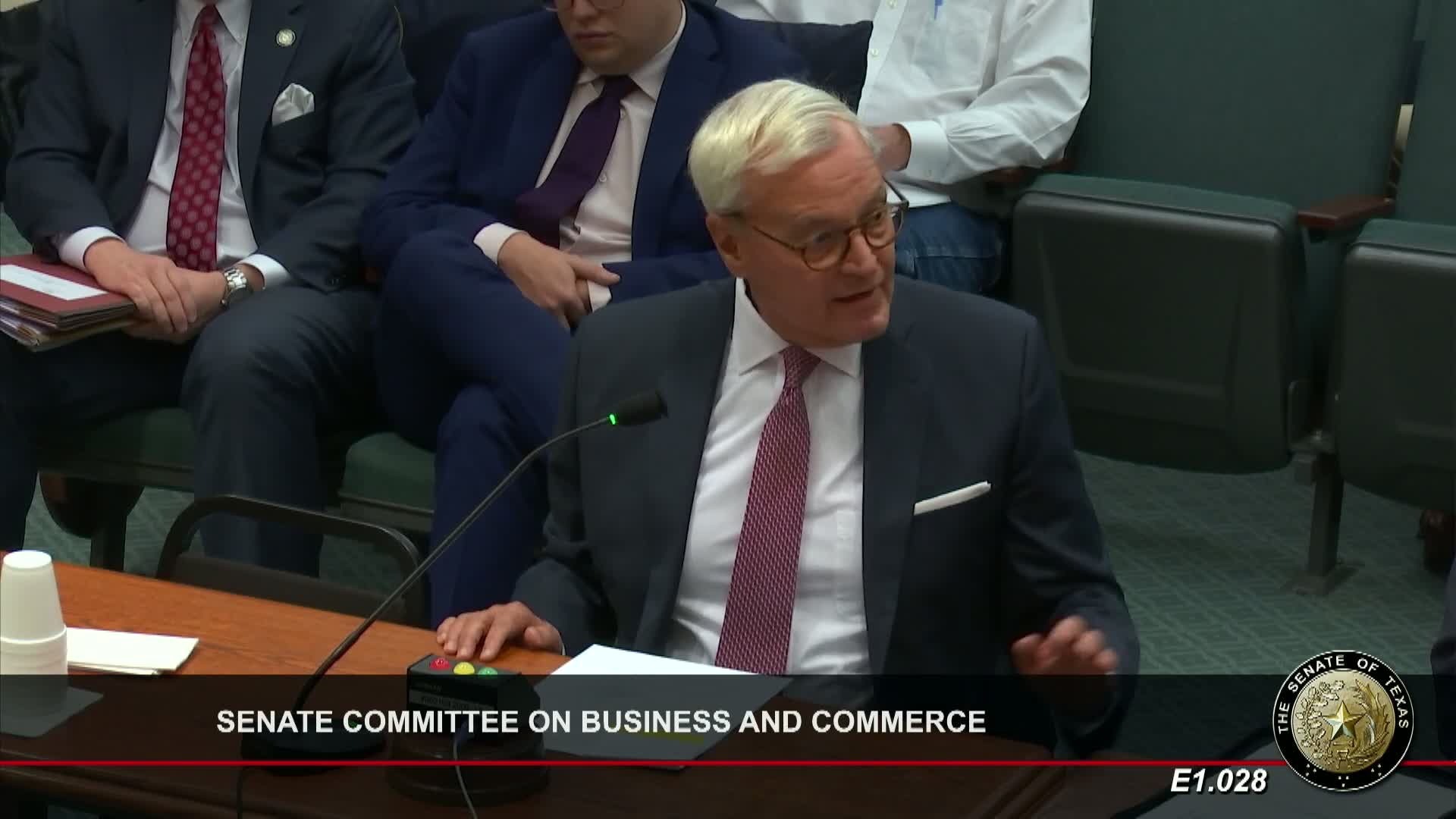Article not found
This article is no longer available. But don't worry—we've gathered other articles that discuss the same topic.
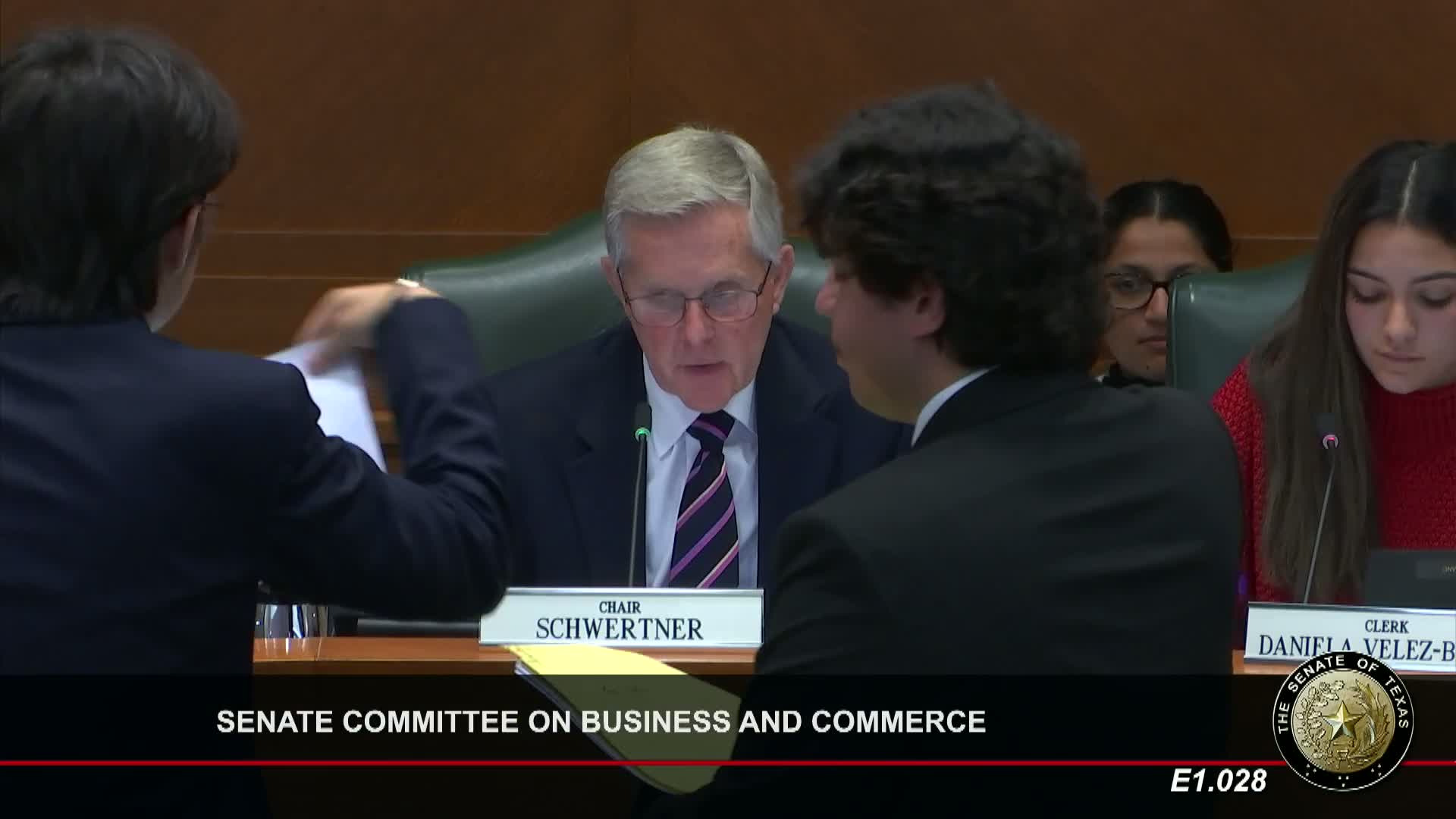
Committee weighs expanding Public Information Act to some large nonprofits and tightening attorney‑client privilege
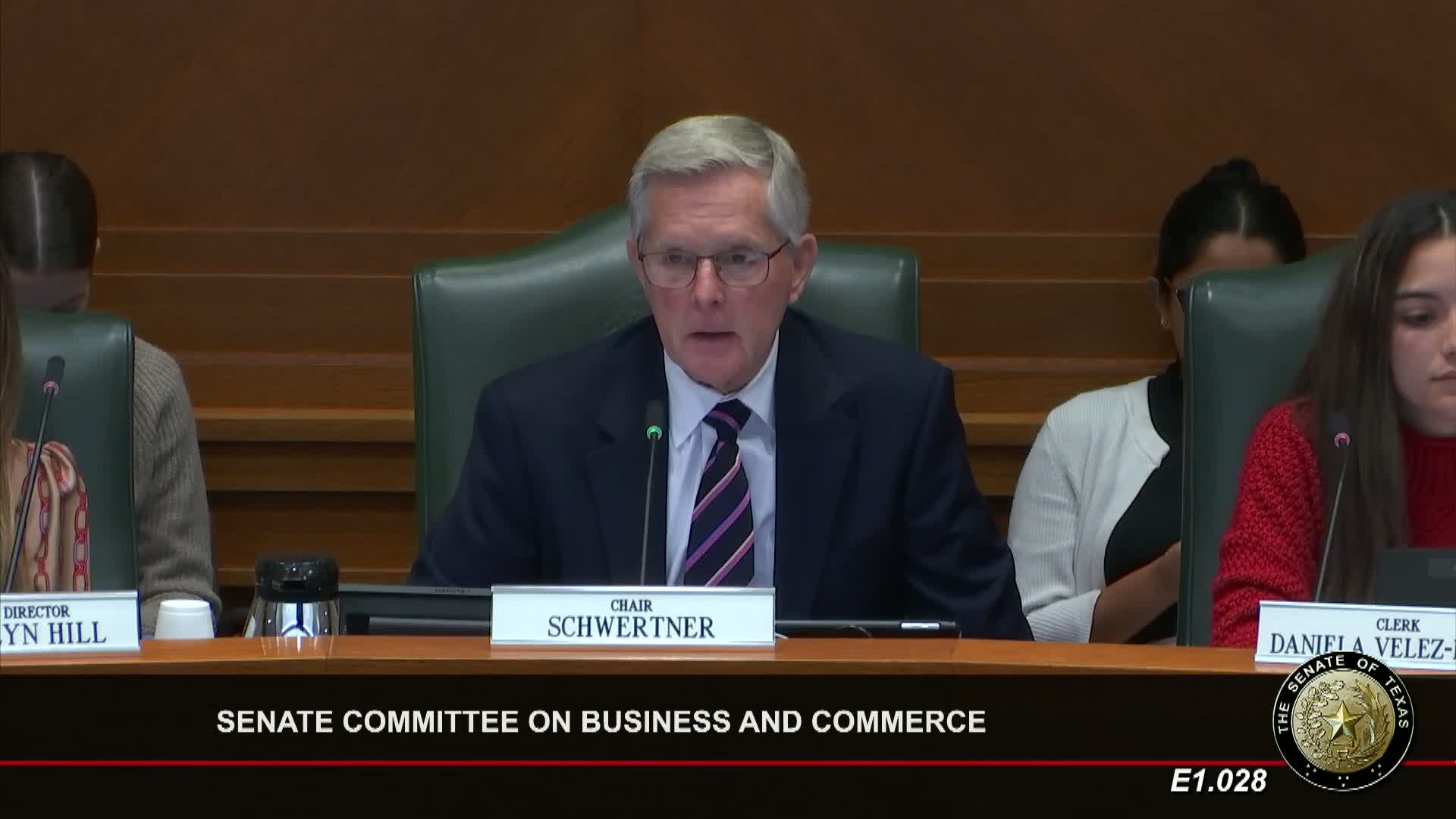
Senate committee hears debate over cutting TNC insurance for drivers en route to pickups
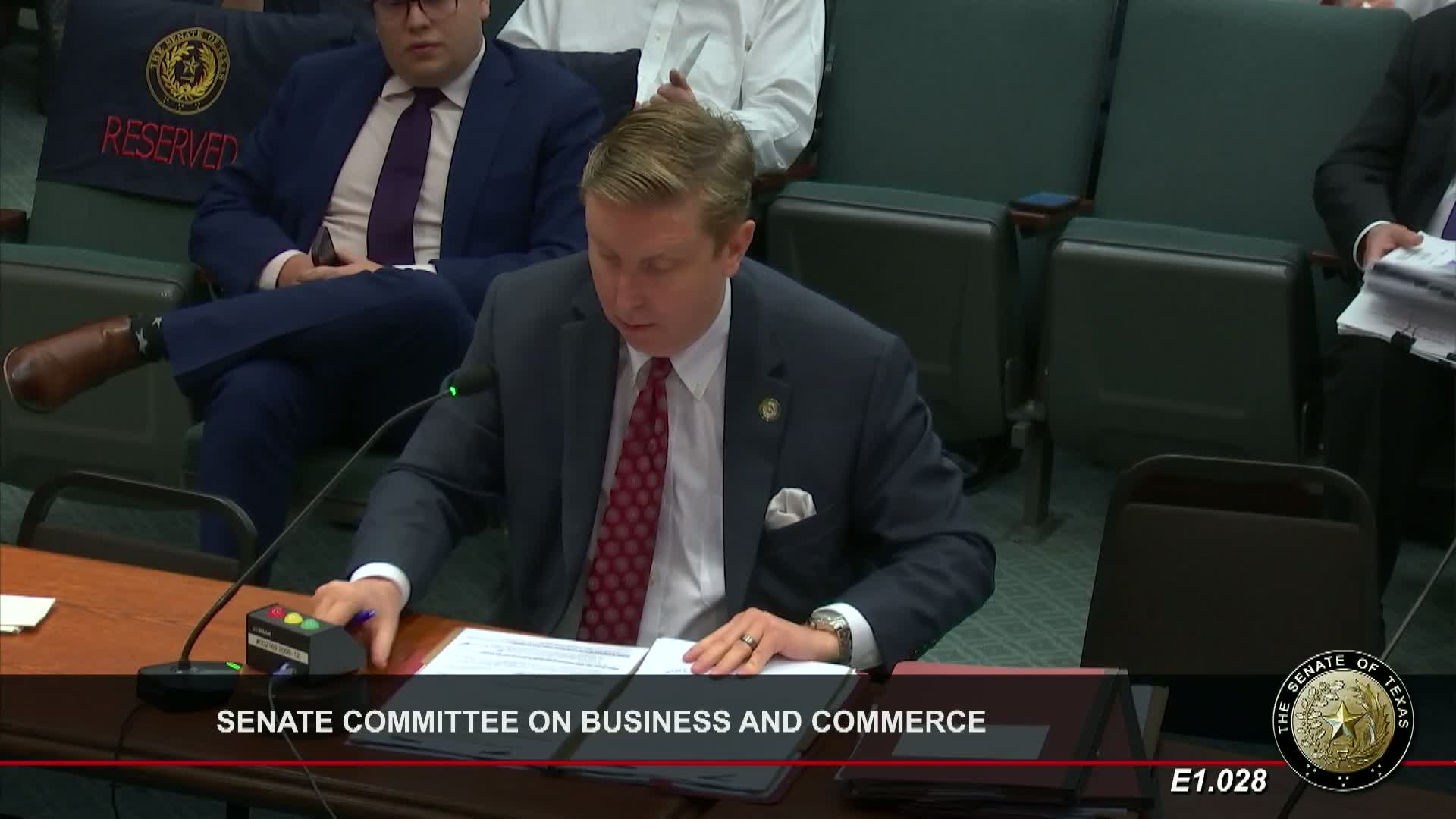
Committee considers self‑insurance pool for churches and religious organizations
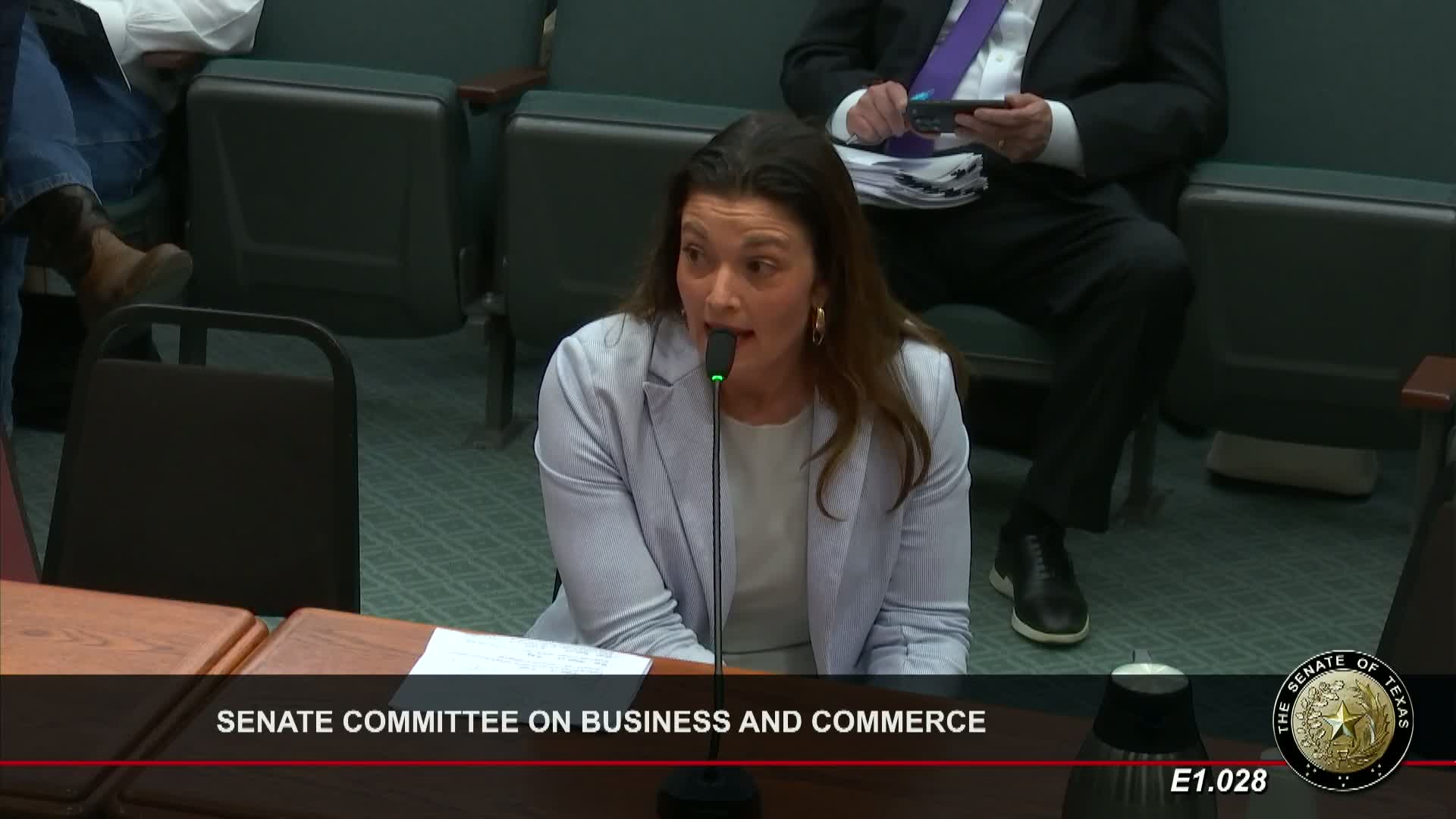
Committee hears supporters and critics of new legal framework for decentralized nonprofit associations
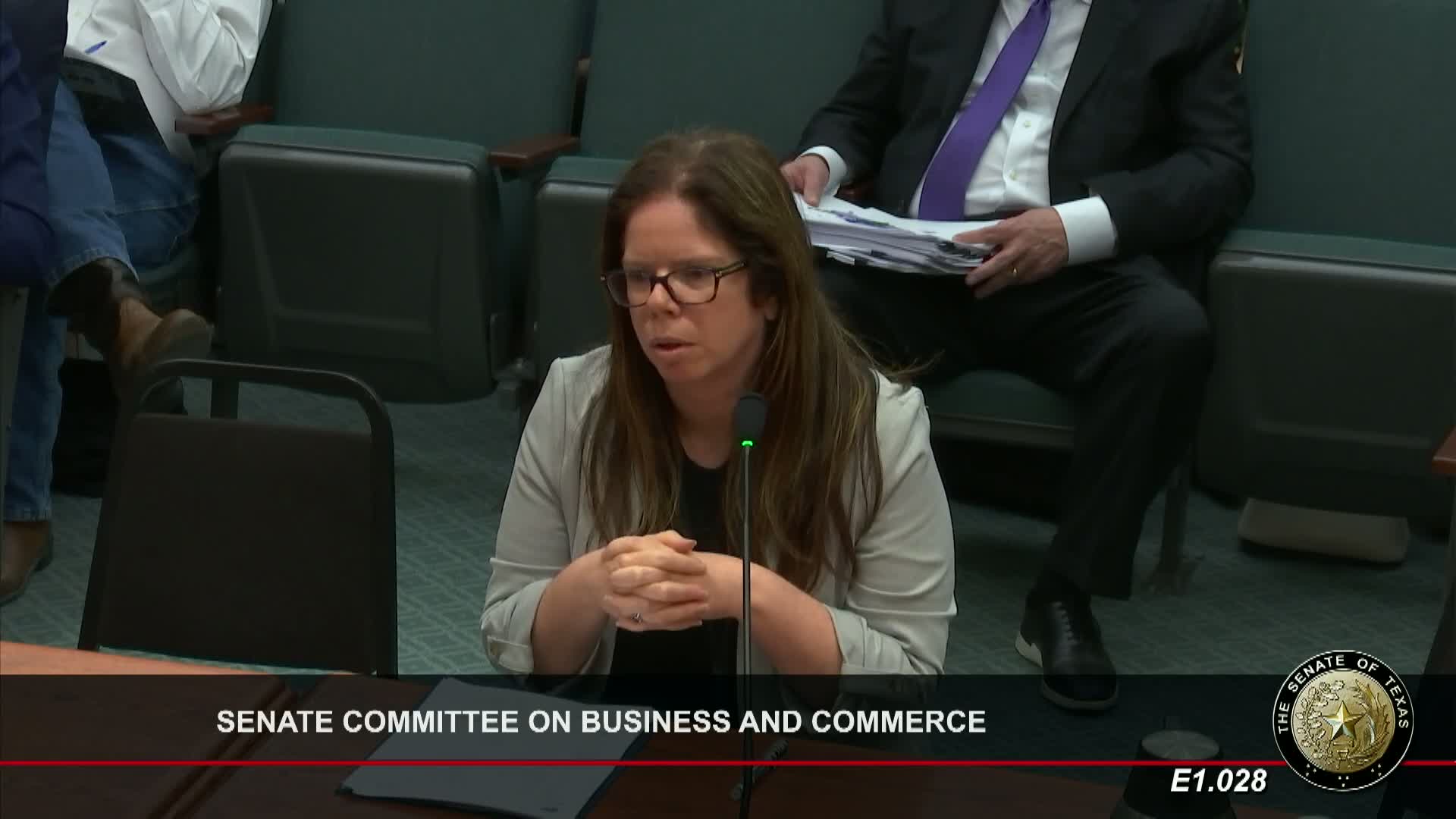
Panel supports technical cleanup to digital‑asset licensing and reporting rules
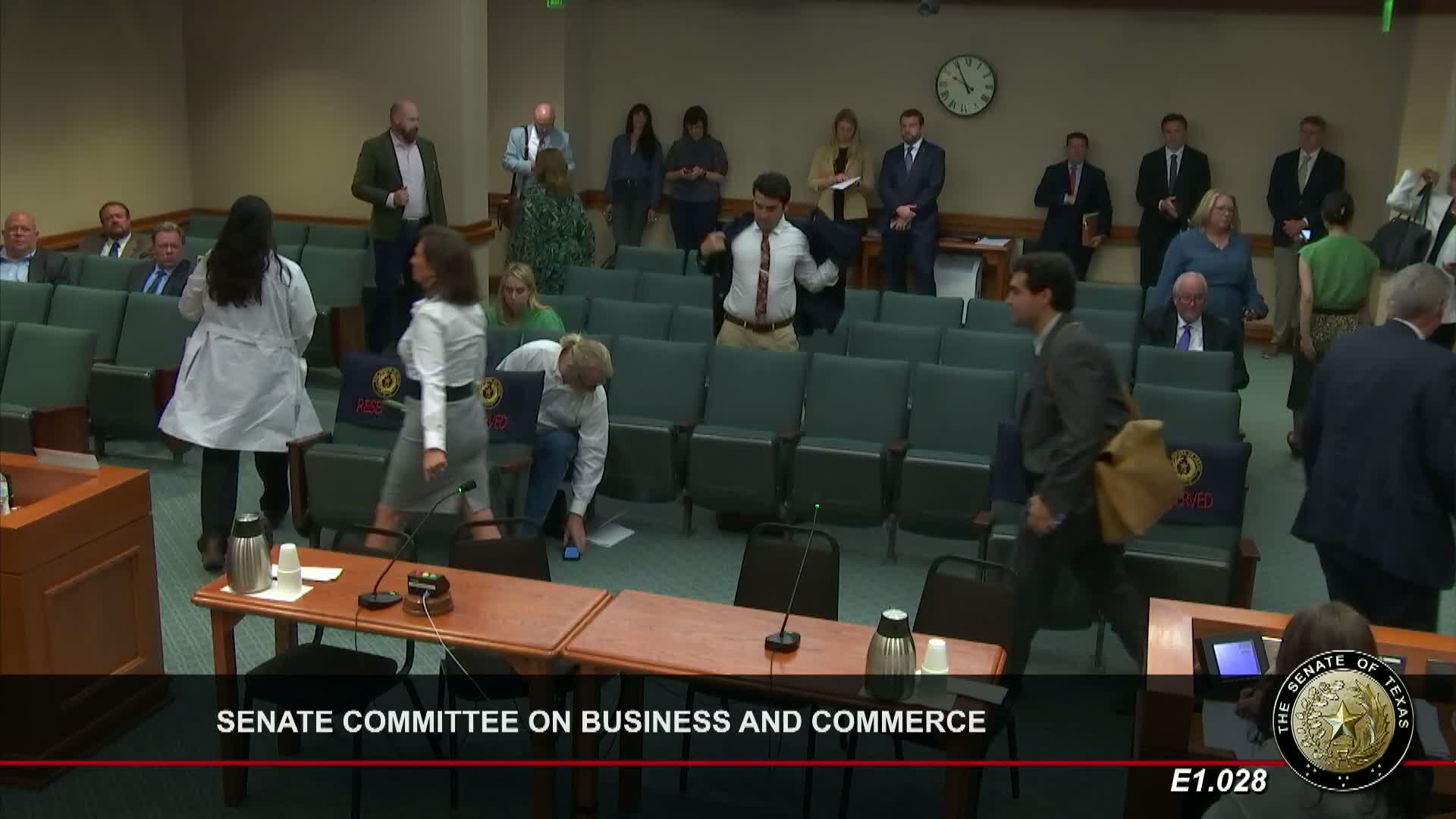
Senate committee clarifies geothermal power as dispatchable, supporters urge TEF eligibility

Senate committee approves study of blockchain title registry, industry pitches pilot projects
